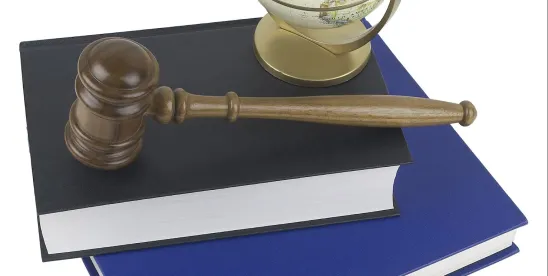In Organovo Holdings, Inc., v. Georgi Dimitrov, C.A. No. 10536-VCL (Del. Ch. June 5, 2017), the Delaware Court of Chancery granted the defendant’s motion to vacate the entry of a default judgment entered against him, holding that the Court did not have subject matter jurisdiction over the case since the remedies sought by plaintiff were not equitable remedies that provided a basis for subject matter jurisdiction. The Court analyzed the means by which the Court of Chancery, a court of equity, could exercise subject matter jurisdiction over a case, and held that none of those existed in this case.
Plaintiff Organovo Holdings, Inc. (“Organovo”) had brought suit against the defendant, Georgi Dimitrov (“Dimitrov”) for libel, libel per se, and tortious interference with prospective economic advantage. Prior to this case, Organovo had already filed a substantially similar suit against Dimitrov’s company, Simeon Research, LLC (“Simeon”) and had won an injunction to stop the same libelous acts referenced here. In this case, however, Organovo sought to enjoin Dimitrov himself from any future defamatory statements and thus brought a damages claim against him as well. Dimitrov was unresponsive and failed to appear at the scheduled hearing, thereby forcing a default judgment to be ordered against him. When Dimitrov did retain counsel, he contested the default judgment on the ground that the Court lacked subject matter jurisdiction over the case.
Organovo designs and creates functional human tissues through its use of proprietary three dimensional bio-printing technologies.
Dimitrov is the creator of Simeon, which published negative information about Organovo on its Twitter page and website. In March and April of 2014, Simeon published two defamatory reports and distributed these reports through sixty five comments on Simeon’s Twitter account. Both of these reports were made to look like the work product of a professional equity research firm. The reports contained false statements tarnishing Organovo’s reputation which damaged Organovo’s share value. Organovo claimed this was a part of a scheme to effectuate profitable short sales of its stock.
Organovo filed a lawsuit against Simeon on April 21, 2014 bringing claims of libel, libel per se, and tortious interference with prospective economic advantage (the “Simeon Action”). Organovo sought an order to enjoin Simeon from further publishing any false and defamatory statements regarding it and compelling Simeon to remove any violative statements from the internet. Dimitrov retained counsel and moved to dismiss the case. Due to Dimitrov’s unresponsiveness, however, Organovo moved to deny Simeon’s motion to dismiss and to enter a default judgment against him, which was eventually granted on September 3, 2014. The order enjoined Simeon from making any further defamatory statements about Organovo anywhere on the internet and to remove any and all libelous statements from the internet. Dimitrov complied with this order and removed the libelous statements from the internet.
On January 13, 2015, Organovo filed this action against Dimitrov himself, claiming most of the same factual allegations and seeking the same injunction against Dimitrov as it sought in the Simeon Action, with the addition of monetary damages. The hearing was scheduled for May 18, 2015, and despite having knowledge of the hearing date, Dimitrov did not appear at the hearing.
A default judgment was entered against Dimitrov, with the caveat that Organovo provide the court with (1) the amount of damages sought, and (2) whether the requested injunctive relief constituted an unconstitutional prior restraint on free speech. Organovo proposed a narrowly tailed injunction that satisfied the Court. For the first time, Organovo also requested that Dimitrov disgorge his trading profits. Finally, Organovo claimed an exorbitant amount of damages and only lowered the amount of damages claimed when he was asked to reconsider the amount by the Court.
On June 27, 2016, Dimitrov retained counsel again and moved to vacate the default judgment against him, arguing that the judgment was void because the court lacked subject matter jurisdiction over the dispute and also could not exercise personal jurisdiction. The decision in this case only reached the issue of subject matter jurisdiction.
An entry for default judgment does not prevent a defaulting party from appearing and contesting the default. The Court of Chancery, Rule 55(c) permits the court to set aside a default if the judgment is void, per Rule 60(b). A judgment is void per Rule 60(b) if the court lacked subject matter jurisdiction or could not exercise personal jurisdiction over the defendant. The Court of Chancery can exercise subject matter jurisdiction only in three circumstances: (1) if a plaintiff states an equitable claim, (2) if a plaintiff requests equitable relief and there is no adequate remedy at law, or (3) jurisdiction exists by statute.
Organovo’s Complaint (the “Complaint”) asserts common law claims for libel, tortious inference with prospective economic advantage, and negligence. The Court stated that none of these were equitable claims, and the Complaint does not invoke a statute or a viable equitable remedy that would confer subject matter jurisdiction on the Court. Organovo cited two equitable remedies in its Complaint: (1) permanent injunction against future defamation, and (2) an order compelling Dimitrov to disgorge his profits. The Court held that neither of these two equitable remedies provided a basis for subject matter jurisdiction, meaning the default judgment was void, and thus, the default judgment was vacated.




 />i
/>i

